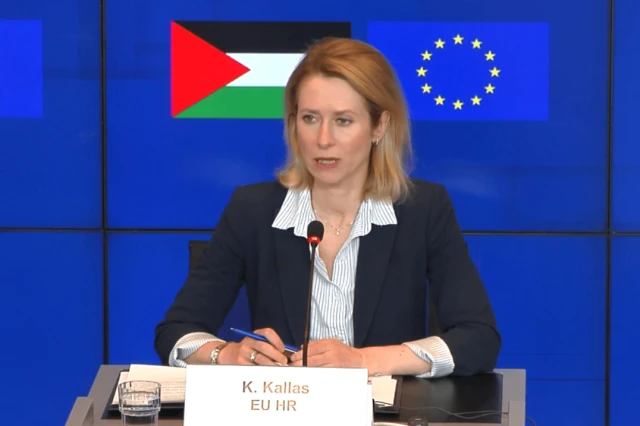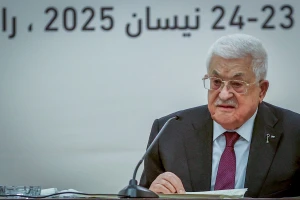EU member states display deep divisions on Israel and Gaza

The European Union (EU) member states on Saturday revealed deep divisions over Israel and Gaza at a summit in Copenhagen.
The EU foreign policy chief, Kaja Kallas, acknowledged the split: “We are divided about this issue,” Kallas stated ahead of the meeting with ministers.
“If you don’t have a unified voice… on this topic, we don’t have a voice on the global scene. So that’s definitely very problematic,” she added.
Countries like Ireland, Spain, Sweden and the Netherlands have called for strong diplomatic actions against Israel, calling for the suspension of EU’s free trade agreement with the Jewish state.
The hosting Danish Foreign Minister Lars Løkke articulated support for Ukraine and increased pressure on Israel over the Gaza war.
“Denmark assumed the presidency of the EU at a very critical time. Both regarding Russia’s war of aggression in Ukraine and the catastrophic and unacceptable humanitarian situation in Gaza. We do not have the privilege to focus on one crisis at the time. We must be able to handle multiple crises simultaneously. We will continue our unwavering support for Ukraine and increase the pressure on Israel to change course,” Løkke stated. The Danish foreign minister also claimed that Israel was undermining the prospects of implementing the two-state solution.
“If the EU does not act as a collective now and take sanctions against Israel, whenever will it? What more could it possibly take? Children are starving,” Ireland’s Foreign Minister Simon Harris said.
However, Israel’s traditional allies like Germany, the Czech Republic, Hungary and Italy are opposed to such a dramatic move against Israel.
Punitive measures against Israel will require the support of 15 EU countries if they represent 65% of the EU block’s total population. However, given the deep divisions on Israel within the EU, Kallas assessed that she was “not very optimistic” that the ministers would reach a consensus even on restricting Israeli companies from access to EU’s research-funding program.
Following the Hamas-led Oct. 7 massacre of 1,200 Israelis in 2023, European countries were generally supportive of the Jewish state. For instance, the EU suspended aid to the Palestinian Authority and the Hamas-ruled Gaza following the atrocities against Israeli civilians.
However, growing and vocal domestic anti-Israel protests against the protracted Gaza war, have pressured many European governments to articulate more criticism of the Israeli military operations. Although Hamas has used Gazan civilians as human shields and disrupted humanitarian aid, much of the international community attributes the humanitarian crisis in the enclave to Israel.
The EU is currently Israel’s largest trading partner. In 2024, bilateral trade between the EU and Israel reached around $50 billion (42.6 billion euros) according to EU sources.
German Foreign Minister Johan Wadephul said Berlin agrees that Israel should respect humanitarian principles in the Gaza war. However, he stressed that the German government is “not very convinced” by the EU proposal to curb research funds to Israeli businesses.
Furthermore, there are also divisions within the EU member states.
The Dutch Foreign Minister Caspar Veldkamp, who is a vocal critic of Israel, recently resigned after the Dutch government failed to reach a consensus on sanctions on the Jewish state.
"I'm going home now and I'm going to write my resignation letter," Veldkamp said, according to the Dutch paper De Telegraf.
“I felt resistance in the cabinet against more measures as a result of what is happening in Gaza City and the occupied West Bank at the moment,” Veldkamp stated.
Despite its recent criticism of Israel over Gaza, Denmark still ranks among the EU countries that are generally more supportive of the Jewish state. Last year, the Danish parliament voted overwhelmingly against a proposal to recognize a “Palestinian state.”

The All Israel News Staff is a team of journalists in Israel.
You might also like to read this:










